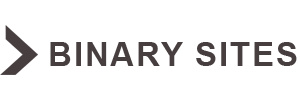A pretty big focus in forum discussions and broker reviews is regulation. What binary option brokers are regulated …and …which ones are not.
Why does it even matter?
Well, as you’re about find out, there are standards brokers have to meet before they can be licensed to operate in any given jurisdiction. These standards are meant to weed out the rogue operators. They’re there to keep us safe.
Does that mean all non-regulated brokers are dangerous?
No, far from it. But it does mean they’re more risky.
Anyway, we’ll get into that more in just a second. But first I want to answer the question, who regulates binary options brokers? Then after that I’ll explain the key differences between a regulated and unregulated broker.
List of Regulated Binary Options Brokers
First lets look at the larger countries/continents – who the regulatory bodies are and some of the more popular brokers in that region. Following that will be a shortlist of regulatory bodies for other (small) countries.
Any company that sells a financial product or service will be subject to the rules and regulations imposed by the Commodity Futures Trading Commission (CFTC). Their goal is to protect Americans from fraud and shady schemes.
Right now there are only a few options to choose from including: Nadex & Cantor Exchange.
In the United States the CFTC regulates options trading which include binary options.
Europe
Most brokers catering to Europeans will be regulated by CySEC. Some of their top brokers include:
- BDSwiss
- MarketsWorld
- IQOption
One rule the CySEC has for their brokers is they cannot accept American traders.
If brokers are operating in the UK then chances are they’re regulated and overseen by the Financial Conduct Authority (FCA). A couple of their top brokers include:
- GFT UK Limited
- OptionFire
- Banc De Binary
- AnyOption
- IGIndex
- OptionWeb
Next up is Australia. Their top brokers include:
- GFT
- OptionsXO
- IG Group
- TradeSmarter
- Direct FX
Brokers here will be registered and licensed by the Australian Securities and Investments Commission (ASIC).
Canada’s financial regulatory body is the Superintendent of Financial Institutions. But they do not license or regulate binary options trading, nor do they have plans to in the near future.
Everyone Else
Here is a shortlist of regulatory bodies for countries outside the big 5 above. Most brokers listed above should be available for traders in the following countries. But you can read our reviews to be sure.
- France – The regulatory body is the Banque de France (BDF).
- Italy – The regulatory body is the Commissione Nazionale per le Società e la Borsa (CONSOB).
- Span – The regulatory body is the Comisión Nacional Del Mercado de Valores (CNMV).
- Netherlands – The regulatory body is the Authority for the Financial Markets (AFM).
- Germany – The regulatory body is the Bundesanstalt für Finanzdienstleistungsaufsicht (BaFin).
- Sweden – The regulatory body is the Finansinspektionen (FI).
- Denmark – The regulatory body is the Finanstilsynet.
- Hungary – The regulatory body is the Pénzügyi Szervezetek Állami Felügyelete (PSZÁF).
- Slovakia – The regulatory body is the National Bank of Slovakia (NBS).
- Czech Republic – The regulatory body is the Czech National Bank (CNB).
Even though each country has their own regulatory body, one common theme across them all is they want to keep their citizens safe from unlicensed rogue binary option brokers.
Here are some of the ways they do that.
Regulated vs. Unregulated Brokers – How Are They Different?
There isn’t much of a difference between regulated brokers. They generally have to follow the same rules.
But there is a pretty big difference between regulated and unregulated brokers. Let me show you a few examples so you can see what I mean.
Here are some standards regulated brokers have to meet to get registered and licensed. They may have to:
- Prove they have enough people, money and resources to run their business. And the amount of everything they need is determined by the regulatory body.
- Set up bank accounts solely to keep their customers’ funds in.
- Have a physical location/office.
- One person in the company or on the license might have to be a resident / native.
- Maintain current financial records.
Do you see how these things are set up to protect you?
The difference here is non-regulated brokers don’t have rules to follow. They don’t have to keep separate bank accounts or have a physical location. They can lump all their money into one account and operate from their mom’s basement if they’re so inclined.
But many brokers try to maintain similar standards, licensed or not. Which brings me to another point – not all unregulated brokers are dangerous. But they are all risky. Let me explain.
Many brokers aren’t regulated because they want to cater to US market. So most regulatory bodies won’t give them a license.
But you can read reviews on the top US brokers and find that they treat their customers fine. They don’t scam them, try to steal their deposits or con them into making larger deposits than they can afford.
They run legitimate companies.
But they’re all risky. And the reason being is because they don’t have to answer to anyone. Legit companies can turn on you – do a complete 180 – and there’s nothing really you can do about it. There are few courses of action you can take.
That’s just something you have to accept if you want to trade from the US. That and the fact they may not hold themselves to the same standards regulatory bodies force regulated brokers to keep.
All that really means for you, though, is you have to do more due diligence than the typical trader before you sign up somewhere.
The extra effort will be worth it in the end.
